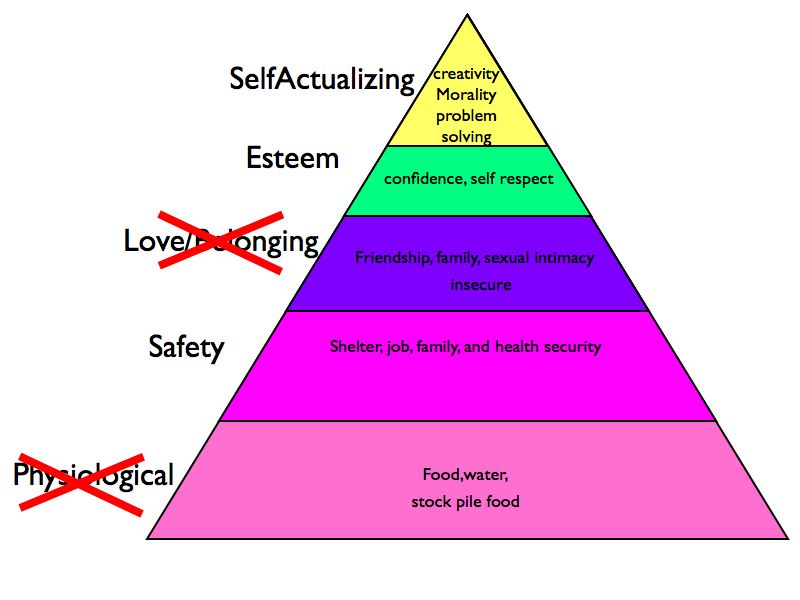1. Personality Theorists - Psychoanalytical and Humanistic
| Site: | MoodleHUB.ca 🍁 |
| Course: | Personal Psychology 20 RVS |
| Book: | 1. Personality Theorists - Psychoanalytical and Humanistic |
| Printed by: | Guest user |
| Date: | Thursday, 16 October 2025, 8:25 AM |
Description
Personality Theorists Book
Freud
The Psychodynamic approach was founded by the well known Austrian physician and psychologist Sigmund Freud (1856–1939).
Although many of his ideas have been rejected in recent years, his work has had a profound and lasting affect in the field of Psychology.
This video introduces some of his ideas on personality and its development.
Freud biography
After studying medicine at the University of Vienna, Freud worked and gained respect as a physician. Through his work with respected French neurologist Jean-Martin Charcot, Freud became fascinated with the emotional disorder known as hysteria. Later, Freud and his friend and mentor Dr. Josef Breuer introduced him to the case study of a patient known as Anna O, who was really a woman named Bertha Pappenheim. Her symptoms included a nervous cough, tactile anesthesia and paralysis. Over the course of her treatment, the woman recalled several traumatic experiences, which Freud and Breuer believed contributed to her illness.
The two physicians concluded that there was no organic cause for Anna O's difficulties, but that having her talk about her experiences had a calming effect on the symptoms. Freud and Breuer published the work Studies in Hysteria in 1895. It was Bertha Pappenheim herself who referred to the treatment as "the talking cure."
Sigmund Freud’s had an enormous impact on the field of psychology. His work supported the belief that not all mental illnesses have physiological causes and he also offered evidence that cultural differences have an impact on psychology and behavior. His work and writings contributed to our understanding of personality, clinical psychology, human development and abnormal psychology.
Freud - Id, Ego, Superego
Freud's personality theory includes three components. The Id , Ego and the Super Ego. The ID operates on what has become known as the pleasure principle. It is where our basic wants and desires comes from.
The Ego is the part of the conscious that tries to get the Id what it wants. The superego is like a conscience that is concerned about social conventions and following rules. The ego has to maintain the balance between the Id who wants anything no matter what, and the superego that is always making one feel guilty for wanting it.
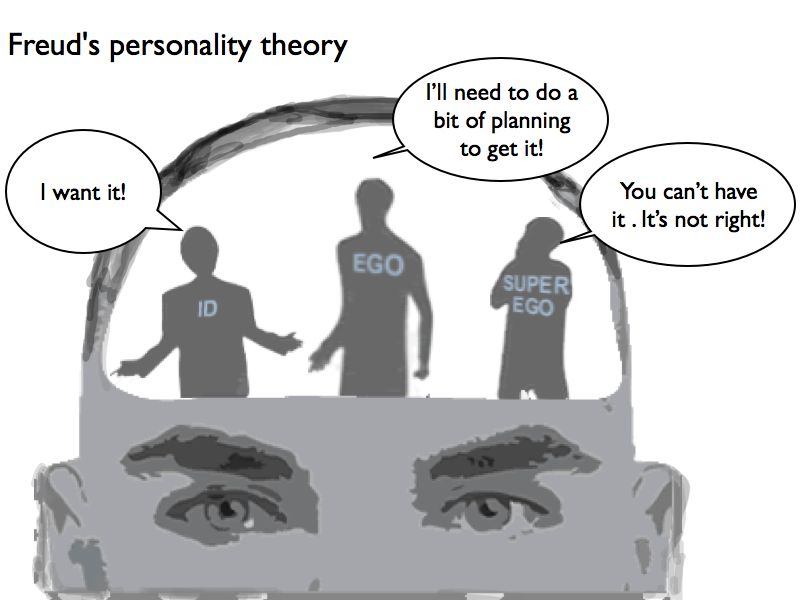
Freud's Defence Mechanisms
Freud believed whenever the mind had trouble reconciling the needs of these parts of the mind, psychological problems occurred.
He suggested that when the ego cannot satisfy the id, it uses defense mechanisms such as the following:
- Denial: claiming/believing that what is true to be actually false.
- Displacement: redirecting emotions to a substitute target.
- Intellectualization: taking an objective viewpoint.
- Projection: attributing uncomfortable feelings to others.
- Rationalization: creating false but credible justifications.
- Reaction Formation: overacting in the opposite way to the fear.
- Regression: going back to acting as a child.
- Repression: pushing uncomfortable thoughts into the subconscious.
- Sublimation: redirecting 'wrong' urges into socially acceptable actions.
All Defense Mechanisms tend to distort, transform, or otherwise falsify reality.
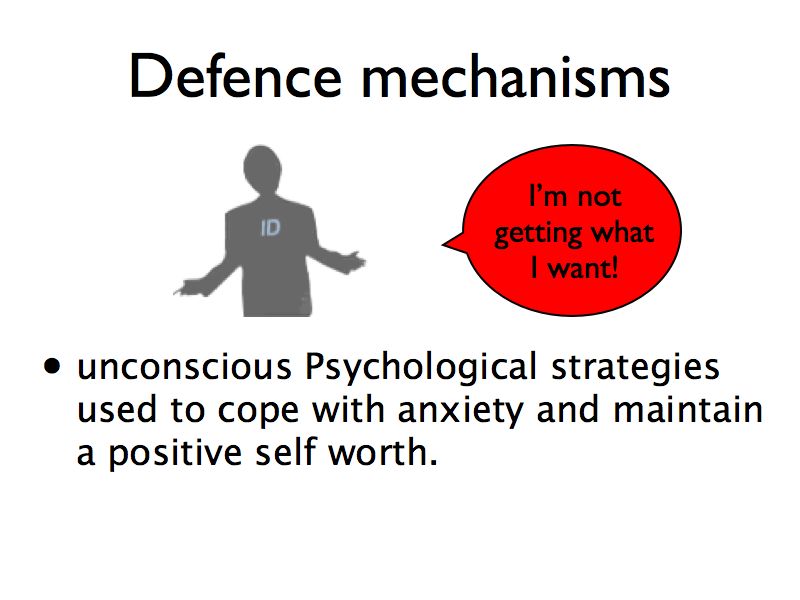
 |
|
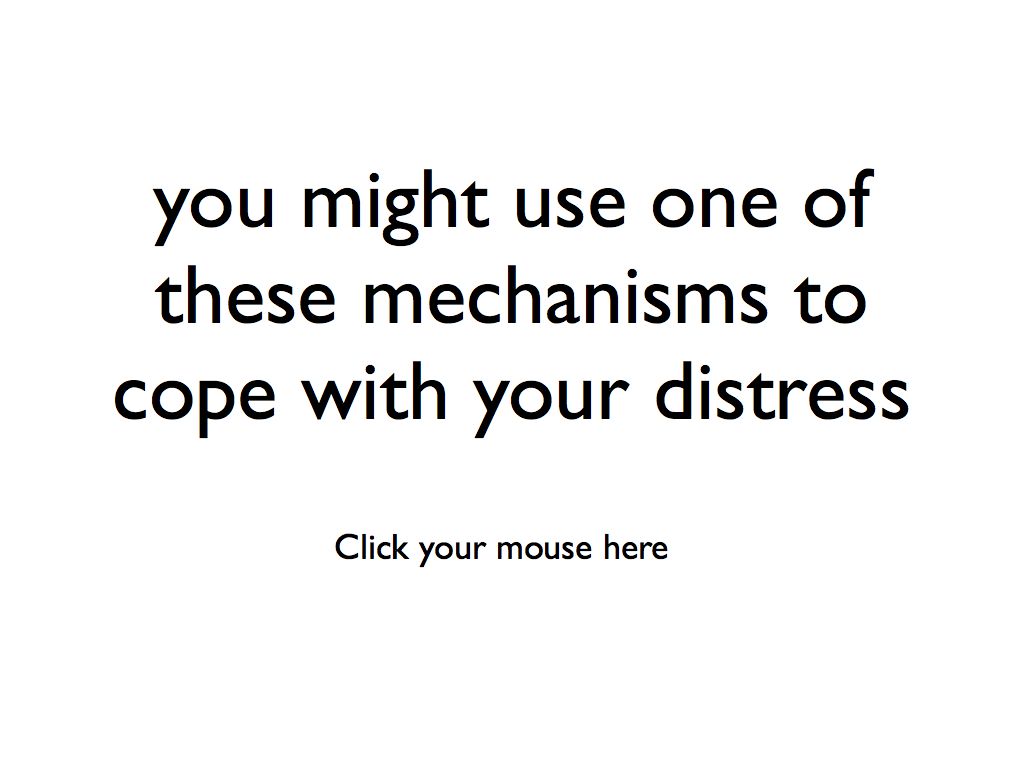
Carl Jung
Carl Jung (1875–1961), was born in Switzerland and started his career as a doctor. He combined his interest in spirituality and began to practice psychiatry working with patients in a psychiatric asylum in Zurich. As a young man, he studied Freud’s ideas and techniques, and in the early years, Jung and Freud developed a collegial friendship. As time went on, however, the relationship deteriorated. Jung began to disagree with some of the basic ideas of Freud and eventually went on to develop his own theory of personality.

Jung agreed that one’s behavior and personality is controlled by our Ego, which was mostly our unconscious mind. Unlike Freud, Jung felt that the subconscious mind was composed of two parts. The personal unconscious, (the things we have experienced, and can recall or have repressed). The second part was the idea of the collective unconscious 9the collection of shared memories we have inherited from our ancestors).
Theory of sensing /Judging Which was taken further by Briggs and Meyers to create teh MBTI
Carl Jung - Archtypes and Personality Type
Jung uses the idea of the collective unconsciousness to explain similarities in human cultural symbols such as the the madonna (mother figure , the goddess, and hero). These ideas and myths are found in most cultures and share similarities.
Jung downplayed the importance Freud put on sexuality, and instead suggested a more spiritual motivator. He suggested symbols in dreams were part of a bigger longing and yearning to learn about one self.
Jung began to type personalities. He called this typology.
Later his work with personality types led to the development of the Meyer Briggs personality test. We will study this in more detail in the personality test book.
Humanistic - Maslow and needs
This approach to personality and behavior started to gain footing in the 1960‘s. This approach is different from the psychoanalytical theories, in that it suggests humans have free will. People are able to make decisions that contribute to one's personality.
Abraham Harold Maslow was born April 1, 1908 in Brooklyn, New York. His parents were uneducated Jewish immigrants from Russia. He first studied law at the City College of New York before moving to Wisconsin to attend the University of Wisconsin. There, he became interested in psychology, and received his undergraduate degrees and PhD (1934).
While doing research with monkeys with Harry Harlow, Maslow noticed that some needs take precedence over other needs. This idea led to his theory of the hierarchy of needs.
Maslow - Hierarchy of needs
Maslow's theory of the hierarchy of needs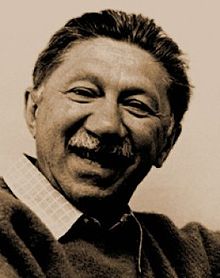
The most basic of needs, those that keep us alive are at the bottom. If these needs are not met, people can not progress up the pyramid to achieve their fullest potential.
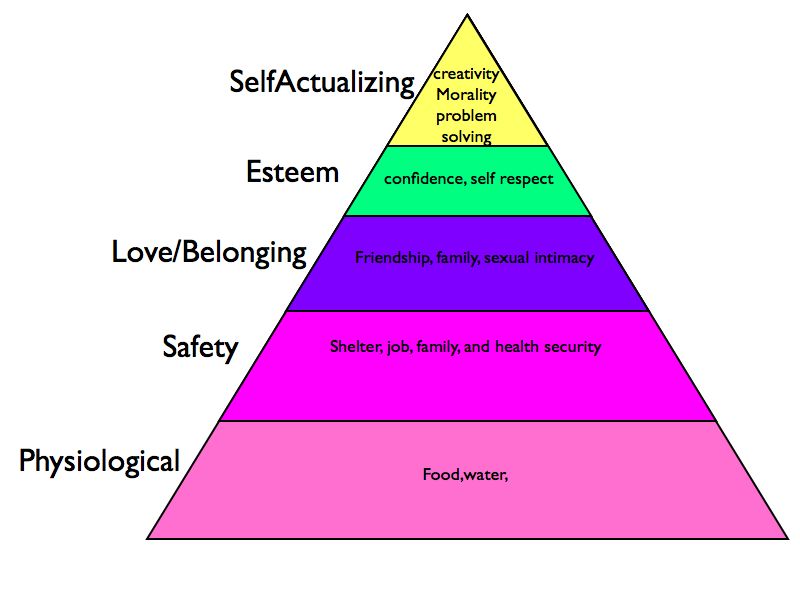
Maslow suggested that if you do not get some of these needs met, or there is a problem at one of the levels, you may become fixated at that stage and may not be able to move on in your personality development. For example, if you are in a war as a child and are deprived of your basic needs, you may become obsessed with collecting or stocking the pantry. A divorce in your family, may cause you to be insecure in your marriage as an adult.
